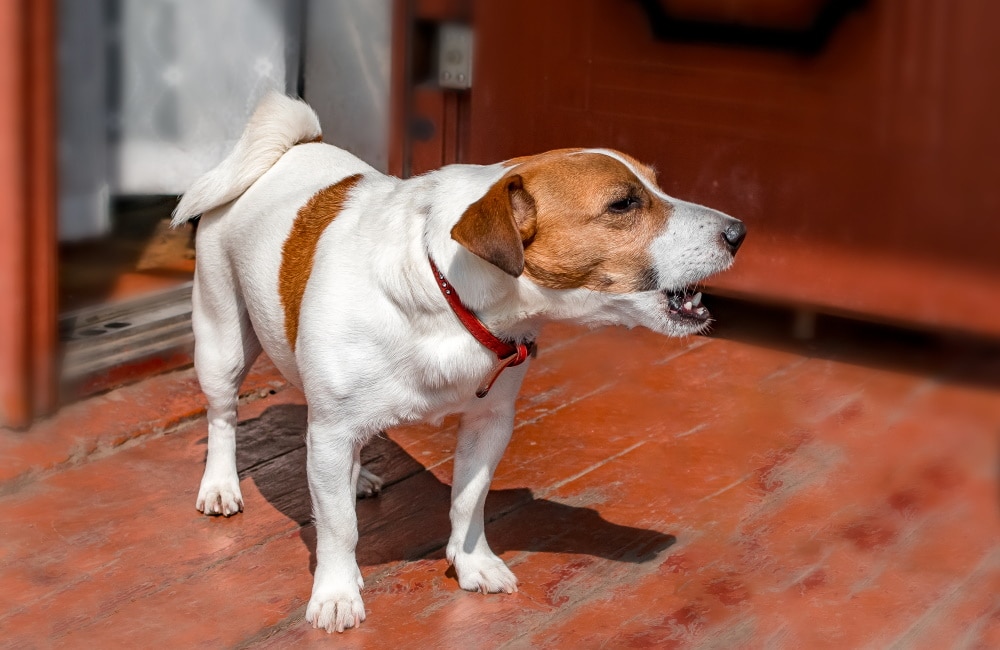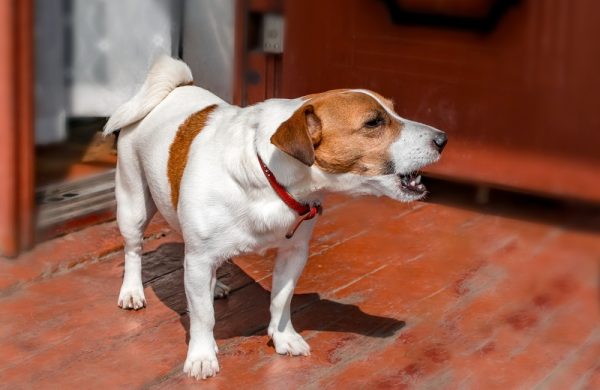It can be puzzling and frustrating when your once well-behaved dog is suddenly engrossed in bad behavior. Suppose you trained your dog to learn basic commands, and they nailed what is acceptable behavior and what is not. Your dog was good and never tore up things, dug holes, barked at people, or peed in inappropriate places. Suddenly, your dog is exhibiting many bad behaviors, so what gives?
If you’re in this situation, we’re here to help! A few of the reasons listed below could be the cause of your dog’s sudden bad behavior, and the sooner you get to the root of the problem, the sooner you can have your well-behaved buddy back. Read on to learn the eight possible reasons why good dogs go bad and what you can do to resolve the problem.
The 8 Possible Reasons for a Good Dog Going Bad
1. Not Enough Exercise
Exercise is extremely important for dogs, as it helps them stay in shape and allows excessive energy to be released. Dogs can easily get bored with a lack of exercise, and if they don’t get enough, they will act out by practicing bad behaviors. If your dog is cooped up in the house with nothing to do or play with, they may get frustrated and take it out on something, and that something may be your expensive leather couch.

2. No Mental Stimulation
Mental stimulation is just as vital as physical stimulation for dogs, and it can sometimes get overlooked when you know physical demands are being met. Dogs are intelligent creatures and many breeds need a ‘job’ to do to exercise their brains. One way to provide mental stimulation is to keep puzzles and games around for your dog, especially if your dog is home alone during the day. Some puzzles even allow you to place treats inside for your dog to find.
You can also switch up your walking routine for mental stimulation to allow your dog to experience new sights and smells. You can even play a game of hide-and-seek with your dog, which is also fun for you. In short, anything that makes your dog think and figure something out is an excellent mental exercise.
3. Not Enough Socialization
Socializing your dog throughout their life, but especially when they are a puppy is essential to prevent bad behaviors as they grow up. Between the ages of about four and twelve weeks puppies have what is called a ‘socialization period’. This is when they learn about new things like different people, animals and places in a positive way. This means as adolescent and adult dogs they are more resilient and flexible and know how to react to different situations and people.
Dogs that were not well socialized as puppies are more likely to develop bad behaviors later on in life when they encounter something they are unsure of. These problem behaviors usually result from fear. It’s never too late to help your dog feel more comfortable through positive reinforcement, although it’s important to work at your dog’s pace and not force them into situations that make them uncomfortable or fearful. Working with a certified behaviorist or dog trainer is usually advisable.
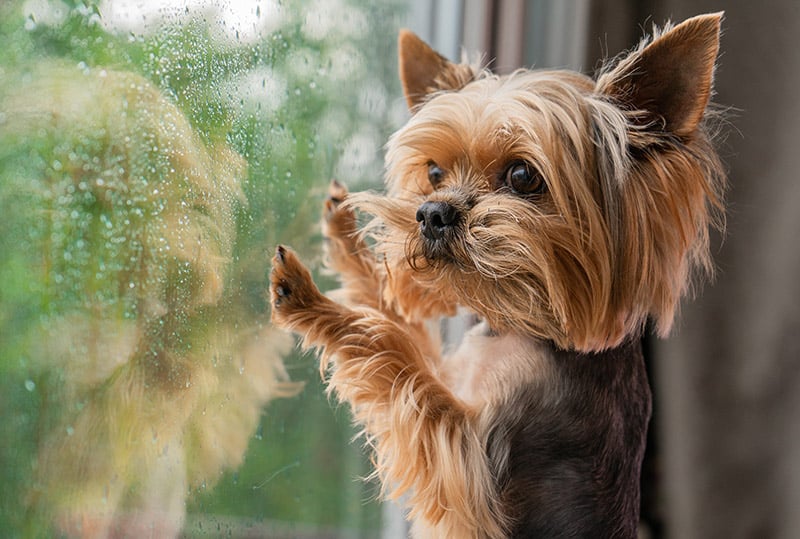
4. You’re Reinforcing Bad Behavior
You may be unconsciously reinforcing bad behavior that will only escalate if not nipped in the bud. For example, if your dog barks at the doorbell and you shout at them to stop, you may actually be reinforcing the behavior. The occasional tidbit in the kitchen or from the table may seem harmless, but will reinforce begging and pestering behavior when you’re cooking or eating.
Instead, refrain from giving your dog attention when they do an unwanted behavior. The goal is to redirect the behavior by using positive reinforcement, in which they’re rewarded for a desired behavior and not inadvertently rewarded for the behavior you’re trying to stop.
5. Inconsistent Rules/Bad Training
When you have inconsistent rules, your dog will only be confused and not understand what you’re asking of them. For example, allowing your dog to jump on you when you have pants on but not shorts on is a prime example of inconsistent training. If you don’t want your dog to jump on you or other people, you need to stay the course and not deviate or bend the rules, no matter what.
Some problem behaviors result from fear, punishing your dog by shouting or physical correction can make these dogs even more scared and worried causing an escalation in bad behaviors such as aggression.
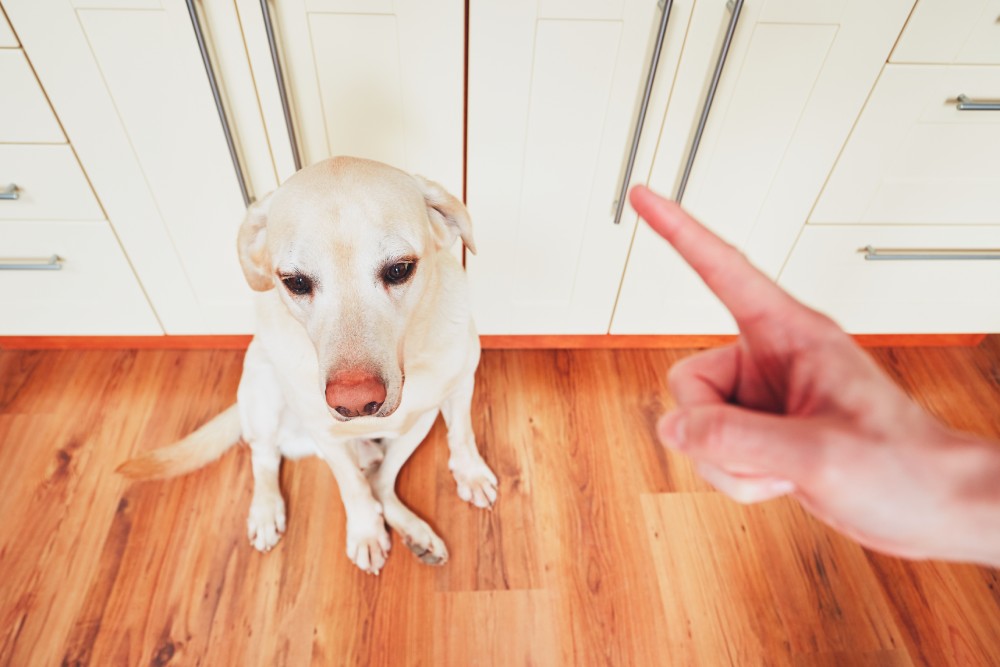
6. Injury or Illness
Pain may cause your dog to take a turn in their behavior and urinary tract diseases can cause your previously house trained dog to start peeing in the house. Whenever there is a sudden change in your dog’s behavior it’s best to get them checked out by your vet in case of underlying health issues that need addressing.
7. Genetics
Your dog’s genetic background plays a large role in some of the behavioral characteristics they might develop. Studies have shown that certain traits such as fearfulness, working drive, impulsivity and tendencies towards aggression are strongly influenced by breeding. Sometimes things that we consider bad behaviors are misunderstood, for example some breeds like terriers are more prone to digging because of their hunting histories, not because they are being naughty. This is why it’s important to look into the breed traits of your chosen breed and find reputable breeders who only breed well-balanced parents.
Of course other factors like good socialization and training are also extremely important in shaping your dog’s character.
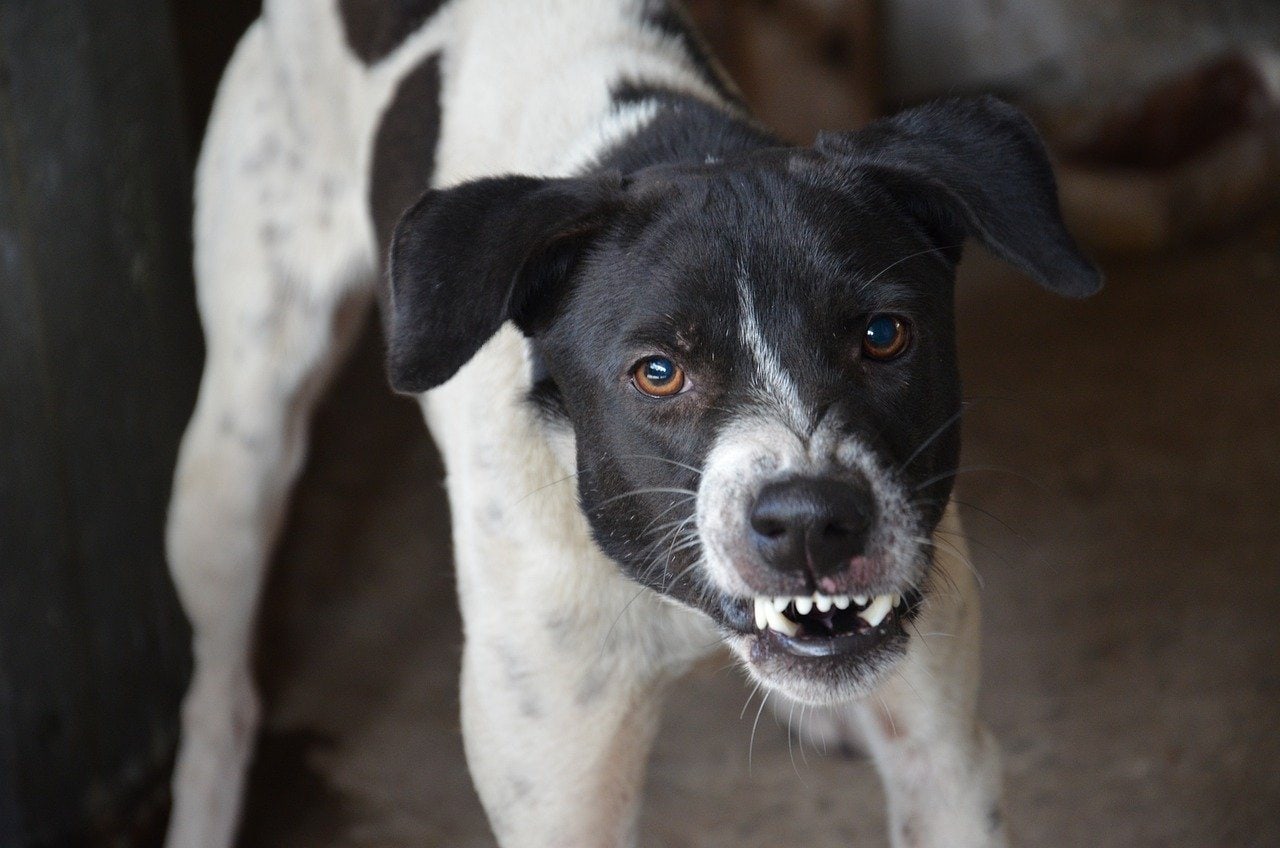
8. Adolescence
As your dog reaches sexual and social maturity they often go through a “rebellious” teenage stage when their behavior seems to go bad almost overnight. Hormonal changes can cause struggles with training. They may have more energy and drive to explore and run and find it difficult to control their impulses. Patience and understanding is normally needed during this period when it can feel like your dog has suddenly stopped listening to you. Continue structured play, exercise and regular reward based training sessions. Try to prevent or manage situations that cause excitement and frustration.

How to Remedy Your Dog’s Bad Behavior
Training, training, and more training. Did we mention training? All jokes aside, positive training is key and will allow your dog to become a well-rounded, well-behaved canine. Any dog can be properly trained to curb certain annoying or frustrating behaviors like jumping up, chasing or pulling on the leash, as long as the owner knows how to train them correctly. Some dogs take longer to train than others, but with persistence and consistency, you can turn it around.
However, more serious issues like aggression will need behavioral therapy as these can have a huge impact on both you and your dog, and can be dangerous. Contact your vet to rule out any medical issues, and then consult with a behaviorist as there is often an underlying emotional cause such as fear that needs addressing.
Remember to reward desirable behaviors and do not reward the bad. Always use positive reinforcement when training, and ensure your dog is receiving plenty of physical and mental stimulation. Remember that many of your dog’s behaviors are partly a result of their genes, as well as their environment. Don’t forget to continue to socialize your dog as often as you can.
If you’ve already trained your dog and they suddenly start behaving badly, look for clues to find the root of the problem. Stop and think: Am I providing enough physical and mental stimulation? Does my dog have plenty of puzzles and games? Could they be sick? Sometimes, humans need to be “retrained” rather than the dog, and reevaluating your training methods and seeking support from a professional may be in order.
Final Thoughts
Dogs are intelligent and can be trained to exhibit desirable behaviors, even if they’ve fallen off track. Remember, finding the root of the problem is your solution to turning it around. If you suspect your dog has an illness or injury, the first course of action is to have your dog evaluated by your veterinarian. You may also want to seek advice and support from a qualified animal behaviorist.
Featured Image Credit: Tanya Kalian, Shutterstock

